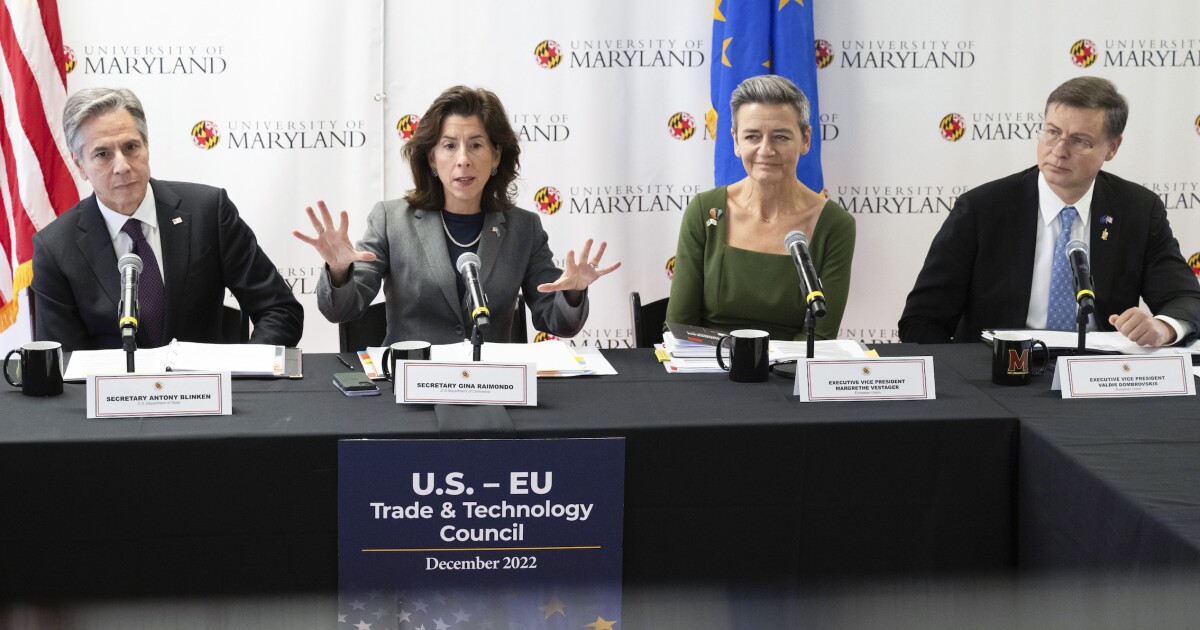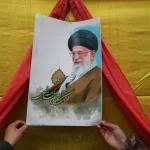

Chinese General Secretary Xi Jinping is trying to allay the European Union‘s unease about Beijing, in opposition to President Joe Biden‘s effort to coordinate trans-Atlantic defenses against the communist regime.
“China supports the strategic autonomy of the EU and hopes that the EU side will adhere to the basic positioning of China and EU as strategic partners,” Xi told German President Frank-Walter Steinmeier in a Tuesday call, per state media. “China-EU relations should not target, depend on or be subject to any third party.”
That conversation coincided with a separate call between French Foreign Affairs Minister Catherine Colonna and her Chinese counterpart, who pitched Paris on “deepen[ing] practical cooperation in economy, trade, agriculture, and aviation.” Yet the tandem overture to the EU’s Western European heavyweights occurred in the midst of a festering trade over Beijing’s crackdown on Lithuania and persistent U.S. warnings about Xi’s partnership with Russian President Vladimir Putin.
“Those two are increasingly sharing a toolkit that should concern the NATO alliance,” Ambassador Julie Smith, who leads the U.S. mission at NATO headquarters, told Financial Times. “To be clear, what we’re talking about is understanding how China operates in and around the Euro-Atlantic area … how it could, through some of its actions, create some security risks or vulnerabilities for collectively the alliance or individual member states.”
US CHALLENGES CHINA’S GROWING INFLUENCE IN AFRICA WITH HIGH-STAKES INVESTMENTS
China’s relationship with European states has suffered from a cascade of controversies and growing distrust, stemming in part from anger over Beijing’s censorship of early warnings about the pandemic and dismay over Xi’s alignment with Putin to propose a “transformation of the global governance architecture and world order” — just weeks before Russia launched the campaign to overthrow Ukrainian President Volodymyr Zelensky.
“It really cannot be emphasized enough how profoundly Putin’s war has shifted reality in the European Union … because we see this war as an existential threat, not just against Ukraine, but also against our democracies — the system we believe in,” the European Commission’s vice president for trade, Valdis Dombrovskis, a Latvian politician, told the EU-China Business Association on Monday. “China’s ambiguity concerning Russia’s aggression was noticed in Brussels and in all EU capitals.”
The EU is in the process of hauling the communist regime before a World Trade Organization tribunal on two different complaints, one related to intellectual property rights.
“EU companies in China feel that internal and external challenges are eroding China’s attractiveness as a destination for foreign investment in favor of emerging markets,” Dombrovskis said. “The view is that China’s leadership is becoming less pragmatic and more inward-looking, moving away from the rest of the world. This makes China’s business and political environment less predictable, less reliable, and less efficient.”
The other trade controversy stems from the economic punishments that Beijing imposed on Lithuania in response to the Baltic state’s decision to allow Taiwan, an island democracy Chinese Communist officials want to see subjugated to Beijing, to open an unofficial diplomatic outpost under the name of “Taiwan,” a controversial move given the communist assertion of sovereignty over the island.
Smith, the U.S. ambassador to NATO, said Chinese and Russian officials “are both working to divide … the trans-Atlantic partners” through a variety of measures.
CLICK HERE TO READ MORE FROM THE WASHINGTON EXAMINER
“We’ve seen them share hybrid tactics,” Smith told Financial Times. “I think China watches very closely how Russia relies on disinformation and things like coercion or energy security, malign or malicious cyber operations.”







